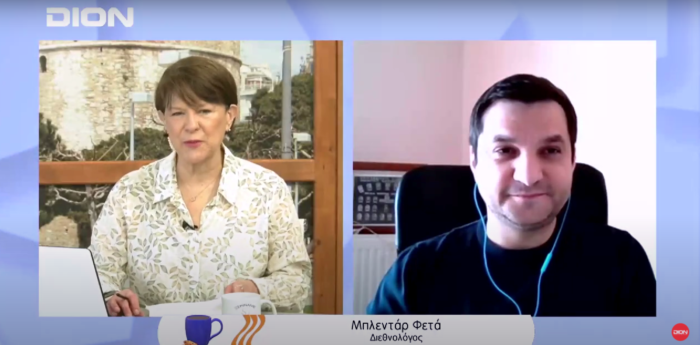Bledar Feta appeared on Thessaloniki’s DION TV to present the research findings from the fieldwork conducted by ELIAMEP’s South-East Europe Programme in North Macedonia in July 2021. Within the framework of the Horizon 2020 PAVE project, the ELIAMEP team conducted research in two municipalities, Kumanovo and Tetovo, with a view to examining the online and offline factors that make these communities vulnerable or resilient to radicalization.
Commenting on the empirical findings, Feta noted that “Extremism is present in both communities. Expressed in several forms, it is fuelled and shaped by a number of factors and drivers which operate in a particular context at both the micro and macro levels. In North Macedonia, violent extremism is determined both by the country’s history of ethnic rivalries and by the ideologies to which ethnic Macedonians and ethnic Albanians have been subjected since the 2001 conflict. These factors have produced three types of extremist trends in the country: ethno-nationalism, religiously-motivated extremism, and violent right-wing extremism”.
Feta made a specific reference to the role that the internet and the online narratives used by extremist groups play in the spread of radicalization: “The online space is perceived as an environment with more opportunities for inciting extremist views. As such, it represents a serious threat to community security and to public order in general. The security threats posed by this phenomenon took on new dimensions during the Covid pandemic, mainly because people’s life became completely digital”.
Click to watch the interview, in Greek.




